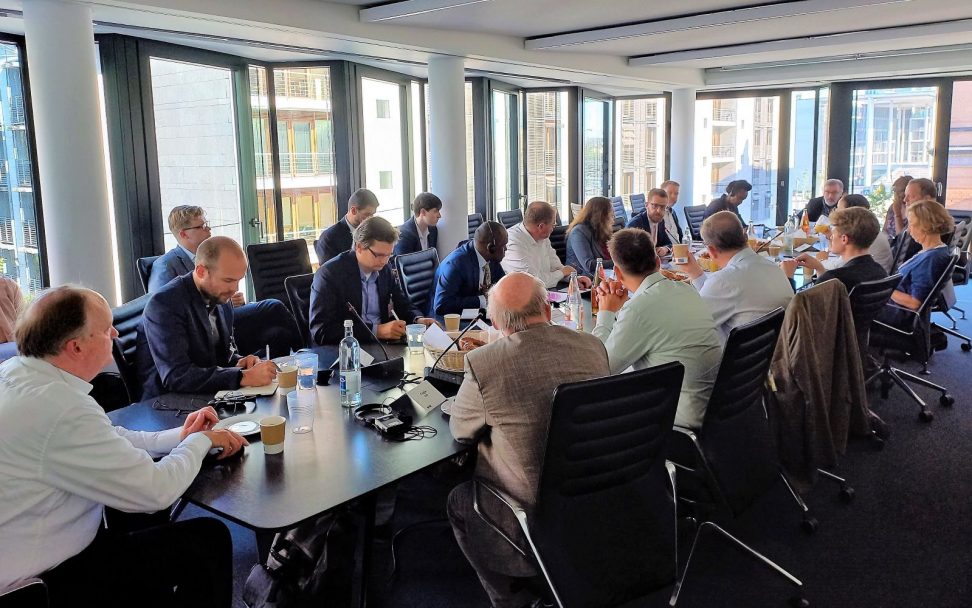Against the background of the COVID pandemic’s socio-economic impact, the war in Ukraine, and rising national debt, Kenya will elect not only a new president but also parliamentary representatives on multiple levels on 9 August 2022. President Uhuru Kenyatta, who is stepping down after two terms in office as stipulated in the constitution, will be succeeded by either the current vice-president William Ruto or by opposition leader Raila Odinga. It remains to be seen how they will tackle the many daunting challenges such as poverty, youth unemployment, social inequality and societal polarisation.
We discussed scenarios and perspectives for the Kenyan election and its consequences for German politics with Bastian Schulz, Country Representative of the Friedrich-Ebert-Stiftung (FES) in Kenya, and Idriss Hassan, Chargé d’Affaires a.i. of the Embassy of the Republic of Kenya in Berlin (requested): How does the polarisation between rich and poor, young and old, and urban and rural affect the election? Of what significance is the so-called “handshake” and alliance between Kenyatta and Odinga? And what are the implications of this momentous election for the regional security architecture in the Horn of Africa beyond the country’s borders?
These and other questions were the focus of the discussion to which Jürgen Coße, Member of the German Bundestag, the German Africa Foundation and the Friedrich-Ebert-Stiftung cordially invited.
Programme
Welcoming Remarks:
Jürgen Coße MP, Member of the Committee on Foreign Affairs
Discussion:
Bastian Schulz, Country Representative of the Friedrich-Ebert-Stiftung (FES) in Kenya
Idriss Hassan, Chargé d’Affaires a.i. of the Embassy of the Republic of Kenya in Berlin (requested)
Moderation:
Sabine Odhiambo, Secretary General, German Africa Foundation
